The FDIC received bids for collapsed SVB before First Citizens Bank deal, Gruenberg says
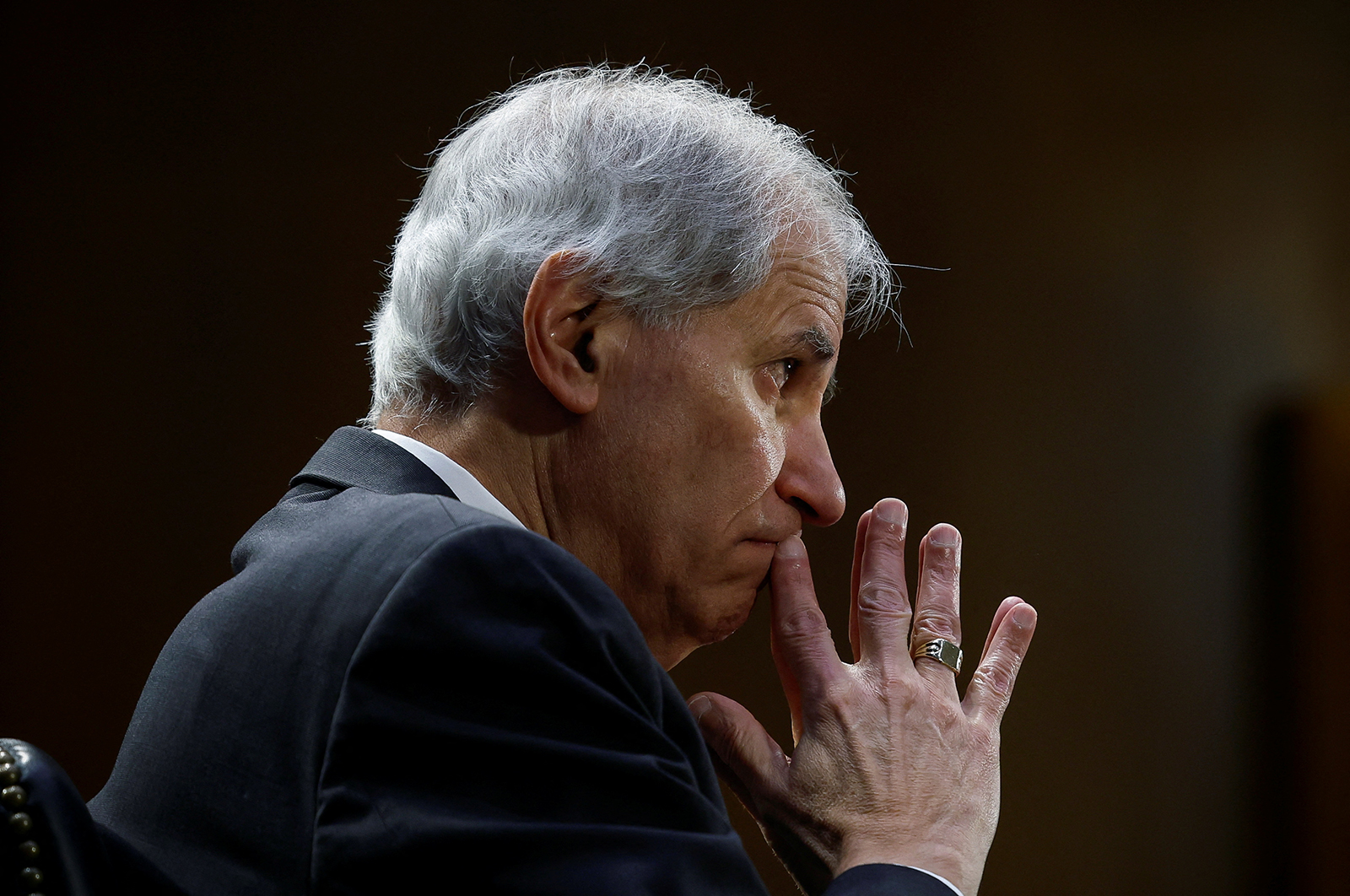
The Federal Reserve received bids for Silicon Valley Bank the Sunday after its collapse, Martin Gruenberg, chairman of the board of directors of the FDIC, testified before Congressional members Tuesday.
"One wasn't valid because it had not been approved by the board of the bank. And the other, after we evaluated it, indicated that it was more expensive than a liquidation of the institution would've been to the FDIC," Gruenberg said.
The FDIC said March 19 that it sold Signature Bank to Flagstar Bank, a subsidiary of New York Community Bank. A week later, the FDIC announced that First Citizens Bank bought what's left of Silicon Valley Bank.
SVB collapsed March 10 after the bank announced about 48 hours before that it sold securities at a loss and would sell $2.25 billion in new shares to raise capital. That triggered a bank run as prominent key venture firm and figures told depositors to withdraw their money.
"A total of $100 billion [of deposits] was scheduled to go out the door that day. The bank did not have enough collateral to meet that," said Michael Barr, vice chair for supervision at the Federal Reserve.
Silicon Valley Bank customers tried to yank $100 billion from the bank the day it failed, regulator says
From CNN's Matt Egan and Nicole Goodkind
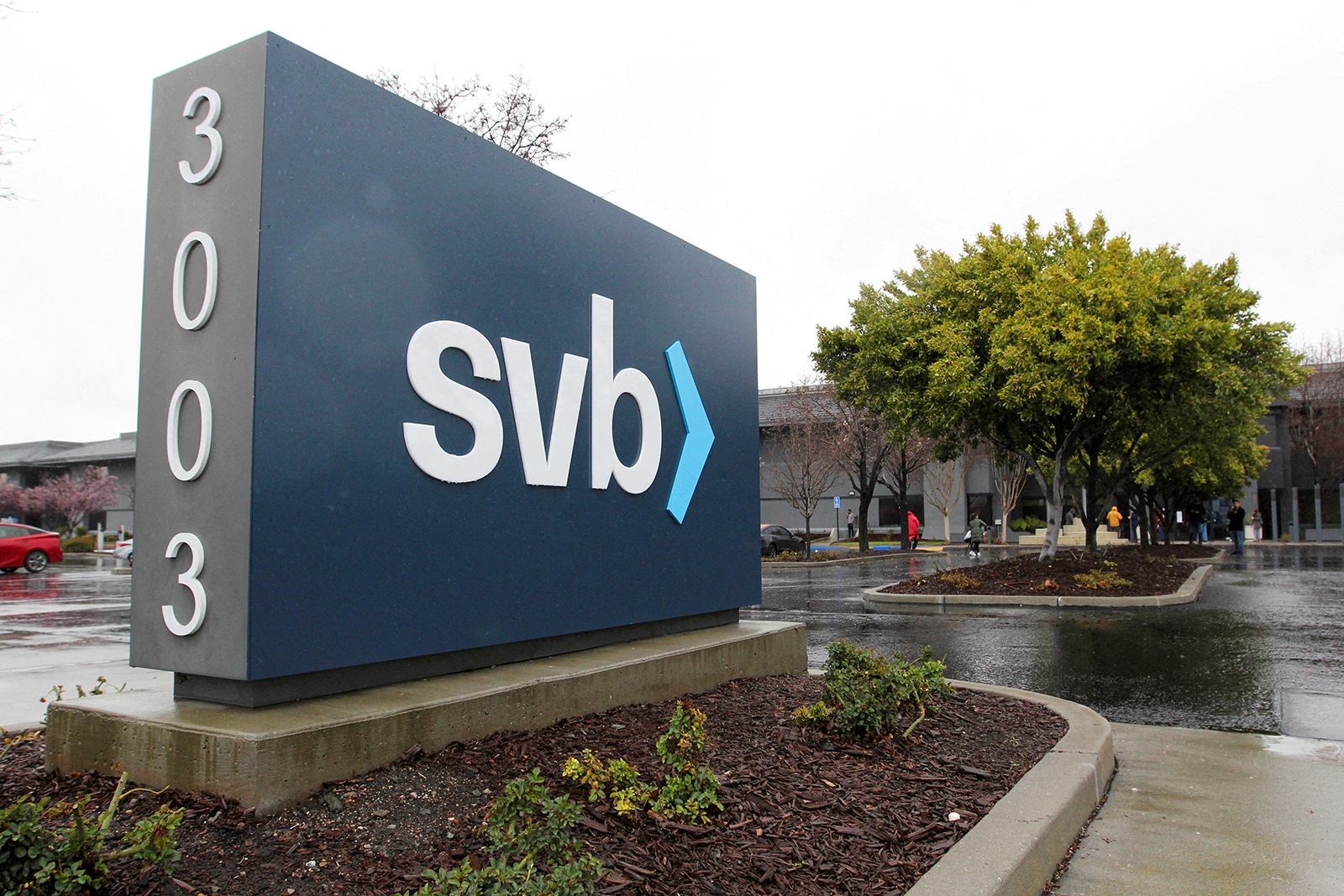
Panicked customers attempted to withdraw a staggering $100 billion from Silicon Valley Bank on the day the tech lender was shut down by regulators, a top US regulator said Tuesday.
The disclosure underscores the enormity of the bank run at Silicon Valley Bank as it became the second-largest bank failure in American history.
Officials have previously detailed that customers successfully pulled $42 billion from Silicon Valley Bank on March 9, the day before it was shut.
Michael Barr, vice chair for supervision at the Federal Reserve, told lawmakers on Tuesday that Fed staff worked with Silicon Valley Bank that afternoon and evening and “through the night” to try to find enough collateral to allow it to borrow from the central bank through the discount window.
“On Friday morning it appeared it might be possible to meet deposit outflows that was expected,” Barr said at the Senate Banking Committee hearing.
But then SVB executives told the Fed the expected deposit outflows would “vastly” surpass what was anticipated, Barr said.
“A total of $100 billion was scheduled to go out the door that day,” Barr said. “The bank did not have enough collateral to meet that. And therefore they were not able to actually meet their obligations to pay depositors over the course of that day and they were shut down.”
Americans expect home prices to continue to rise over the next year
From CNN's Anna Bahney
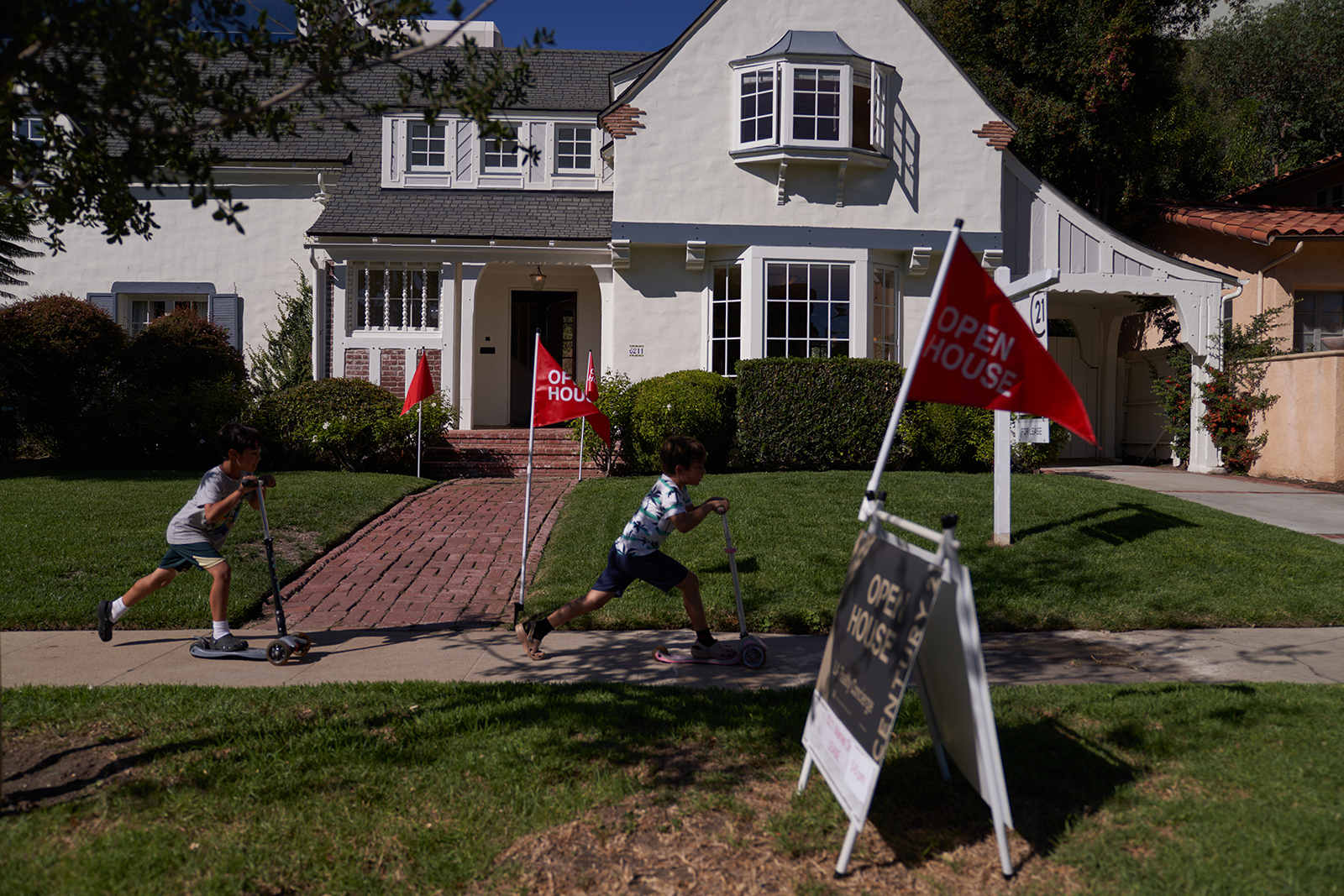
Americans expect home prices to continue to rise over the next year, according to a consumer expectation survey on housing from the Federal Reserve Bank of New York. But, they expect prices to rise by the smallest amount since the survey began in 2014.
On average, respondents to the survey said they expect home prices would rise 2.6% over the next year. That's lower than last year's expected growth of 7% in 2022.
This anticipated decline tracks with data from the core Survey of Consumer Expectations, which shows that home price growth expectations declined sharply between May 2022 and November 2022, when mortgage rates surged.
Households expect mortgage rates to go even higher this year, according to the survey. According to respondents, households now expect mortgage rates to rise to 8.4% a year from now and 8.8% in three years' time.
Consumers expect rent to fall slightly, but the survey reveals people anticipate rent will remain high by historical standards and in comparison to home price growth expectations.
On average, households expect the cost of rent to increase 8.2% over the next year. That is down from the expected 11.5% increase reflected in last year's survey.
Renters reported a small increase in their likelihood of owning a home in the future. The figure rose from 43.3% in 2022 to 44.4% this year. Still, this remains well below the historical norm between 2015 and 2021, when it was generally over 50%.
Fed rated SVB "not well managed" and "deficient," Barr says
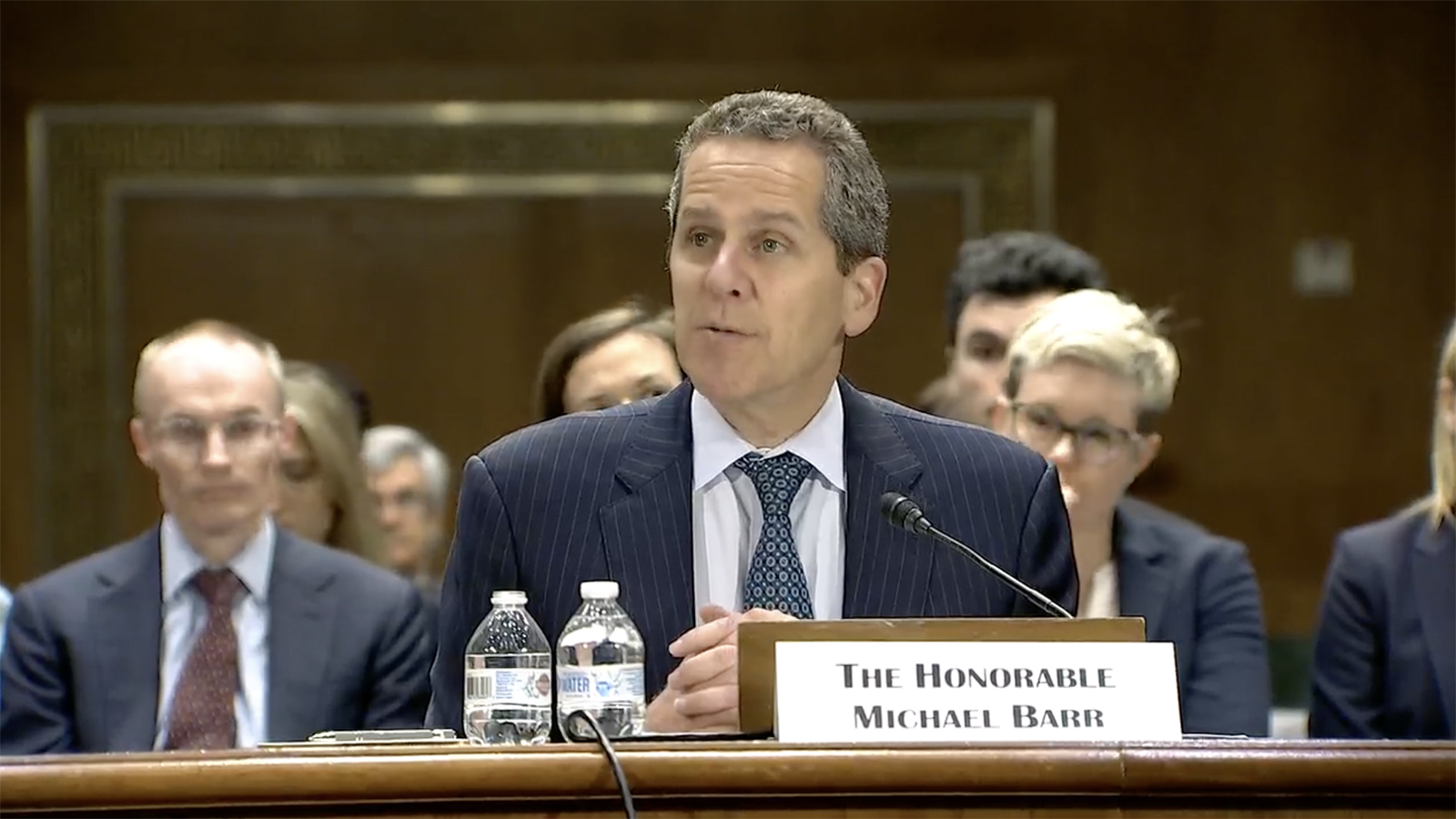
Michael Barr, the Federal Reserve's vice chair for supervision, said Tuesday during the Senate hearing on the bank crisis that Federal Reserve supervisors gave Silicon Valley Bank a low rating before its collapse earlier this month.
Regulators use a scale known as CAMELS to determine a bank's strength and the likelihood it could struggle in a difficult environment.
"The firm was rated a 3 in the CAMELS scale, which is not well managed. And at the holding company level, it was rated 'deficient,' which is also clearly not well managed," Barr said.
The components of the CAMELS rating system include capital adequacy, asset quality, management, earnings components, risk of running low on cash and sensitivity to market risk. The ratings range from one to five, running from the best to worst rating.
"Fundamentally, the bank failed because its management failed to appropriately address clear interest rate risk and clear liquidity risk. That interest rate risk and liquidity risk was cited, was highlighted by the supervisors of the firm beginning in November of 2021," Barr said. "The Federal Reserve Bank brought forward these problems to the bank, and they failed to address them in a timely way."
Goldman Sachs: Banking turmoil is a headwind, not a hurricane
Goldman Sachs economists think a soft-landing is still possible, even in the wake of the recent banking meltdown.
The turmoil in financial systems caused by the collapse of Silicon Valley Bank and Signature Bank this month have led some financial institutions to tighten their standards and issue fewer loans.
If regional banks pull back on lending, that could seriously cool the economy. Banks with less than $250 billion in assets account for about 50% of US commercial and industrial lending, 60% of residential real estate lending, 80% of commercial real estate lending and 45% of consumer lending.
But these risks are unlikely to be "a hurricane that pushes the economy into recession," said Jan Hatzius, Goldman Sachs' chief economist, in a note on Tuesday. Instead, he views the potential credit crunch as "a headwind that helps the Fed keep growth below potential despite the support from rising real income and better global growth."
Still, Hatzius wrote that "the risks are clearly skewed toward larger negative effects," and that the bank has increased its forecast of a possible recession in the next 12 months up to 35% from 25%.
Stocks fall Tuesday ahead of bank hearing
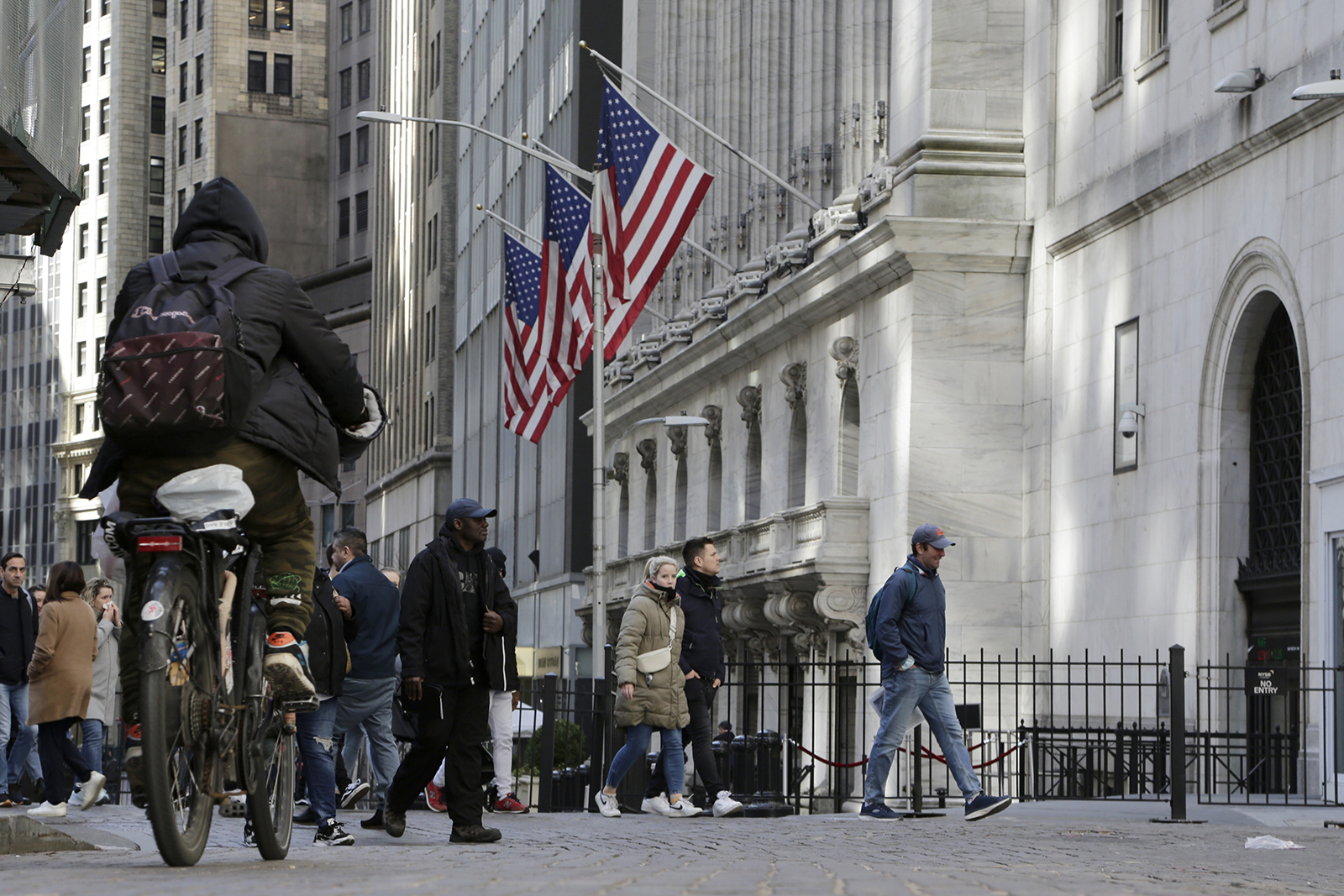
Markets dipped Tuesday as investors awaited the first of several Congressional hearings on recent bank failures and the events that led to the collapse of Silicon Valley Bank.
The 2-year and 10-year US Treasury yields rose but pared back their gains Tuesday as investors gained confidence that the turmoil in the banking sector could be contained.
This comes after stocks rallied Monday, lifted by improved investor sentiment driven by First Citizens Bank's move to purchase most of SVB.
Ahead of the hearing, set for 10 a.m. ET, investors parsed through prepared remarks from Martin Gruenberg, chairman of the board of directors of the Federal Deposit Insurance Corporation and Michael Barr, vice chair for supervision at the Federal Reserve.
Investors are also awaiting the latest consumer confidence survey from the Conference Board for a fresh read on the health of the US economy.
Meanwhile, shares of Alibaba rose about 9.6% on news that the company plans to split its business into six separate units, in the biggest restructuring of its 24-year history.
CNN's Fear & Greed index held steady at 36, indicating fear in the market.
The Dow fell 31 points, or 0.1%.
The S&P 500 slipped about 0.3%.
The Nasdaq Composite sank 0.3%.
US home prices fell for the seventh month in a row in January
From CNN's Anna Bahney
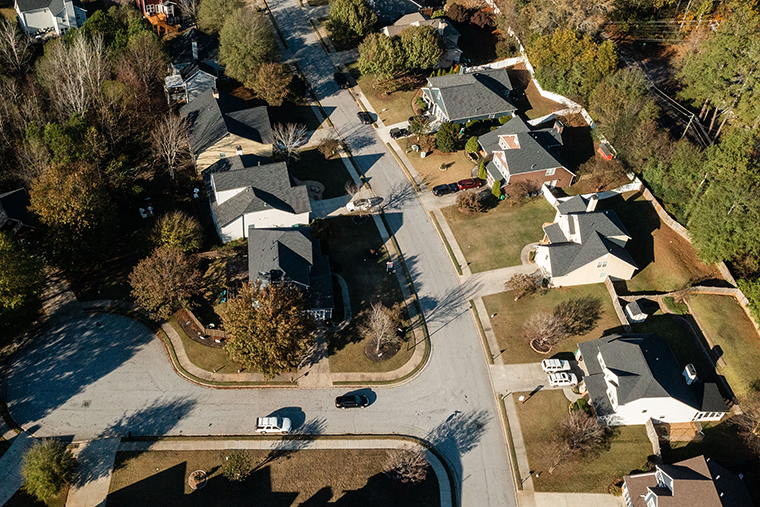
US home prices fell for the seventh month in a row in January, even as mortgage rates eased, according to the latest S&P CoreLogic Case-Shiller US National Home Price Index, released Tuesday.
After seasonal adjustment, the National Index posted a month-over-month decrease of 0.2%.
"2023 began as 2022 had ended, with US home prices falling for the seventh consecutive month," said Craig Lazzara, managing director at S&P DJI.
The National Home Price Index, covering all nine US census divisions, reported a 3.8% annual gain in January from the year before, but that is down from a 5.6% annual gain in the previous month.
This is why SVB imploded, says top Fed official
From CNN's Matt Egan
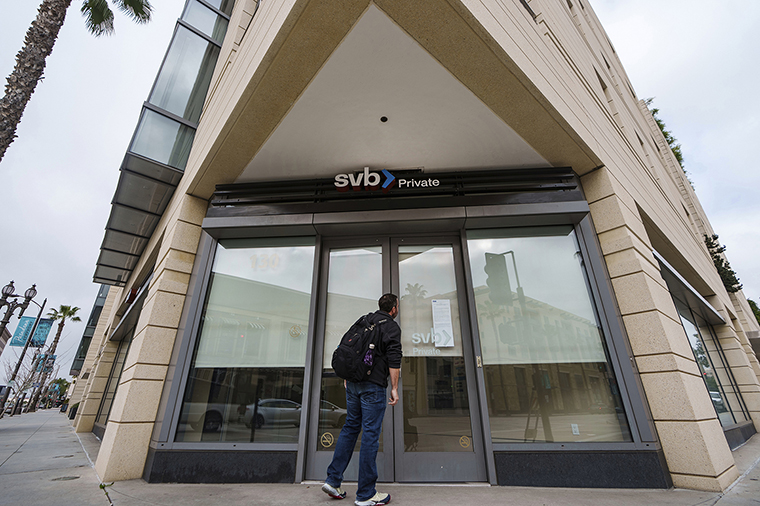
Silicon Valley Bank imploded due to mismanagement and a sudden panic among depositors, a top Federal Reserve official plans to tell lawmakers at a hearing on Tuesday.
In prepared testimony released on Monday, Michael Barr, the Fed's vice chair for supervision, details how SVB leadership failed to effectively manage interest rate and liquidity risk.
"SVB's failure is a textbook case of mismanagement," Barr says in testimony to be delivered before the Senate Banking Committee.
The Fed official points out that SVB's belated effort to fix its balance sheet only made matters worse.
"The bank waited too long to address its problems and, ironically, the overdue actions it finally took to strengthen its balance sheet sparked the uninsured depositor run that led to the bank's failure," said Barr, adding that there was "inadequate" risk management and internal controls.
Depositors yanked $42 billion from SVB on March 9 alone in a bank run, a panic that appeared to be fueled in part by venture capitalists urging tech startups to pull their funds.
"Social media saw a surge in talk about a run, and uninsured depositors acted quickly to flee," said Barr.
In his testimony, Barr discloses that near the end of 2021, bank supervisors found "deficiencies" in the bank's liquidity risk management. That resulted in six supervisory findings linked to SVB's liquidity stress testing, contingency funding and liquidity risk management.
Then, in May 2022, supervisors issued three findings related to "ineffective" board oversight, risk management weaknesses and internal audit function lapses, Barr said. Bank supervisors took further steps last year that show regulators were aware of problems at SVB.
Barr's testimony indicates the Fed's review will examine how the 2018 rollback of Dodd-Frank may have contributed to SVB's failure. That rollback, under then-President Donald Trump, allowed SVB to avoid tougher stress testing and rules on liquidity, funding, leverage and capital.
Barr said the Fed will weigh whether the applying those tougher rules to SVB would have helped the bank manage the risks that led to its failure.
Looking ahead, Barr said the recent events have underscored how regulators must enhance rules applying to banks and study banking has been changed by social media, customer behavior, rapid growth and other developments.
Speed of SVB collapse took Bank of England Governor by surprise, but UK banking system in a “strong position.”
From CNN’s Livvy Doherty in London
The speed at which Silicon Valley Bank collapsed took Bank of England Governor Andrew Bailey by surprise, he told a hearing in UK Parliament on Tuesday.
“In my experience, which goes back 30 years now, it’s probably the fastest passage from health to death since Barings. Barings was a sort of Friday to Sunday thing, and this was pretty similar," he said during the hearing about the rescue of SVB UK.
Barings Bank collapsed in 1995 after $1.3 billion was lost by a single rogue trader Nick Leeson.
In spite of the speed of the collapse of SVB UK and its US parent, Bailey said “the UK banking system is in a strong position both capital and liquidity wise.”
The banking chief said the markets were “trying to find points of weakness at the moment” but he is confident the UK is not in same place it was during the financial crash of 2008.
Bailey said it’s a “very different place to that, but we have to be very vigilant… We are in a period of very high, frankly, tension and alertness.”


